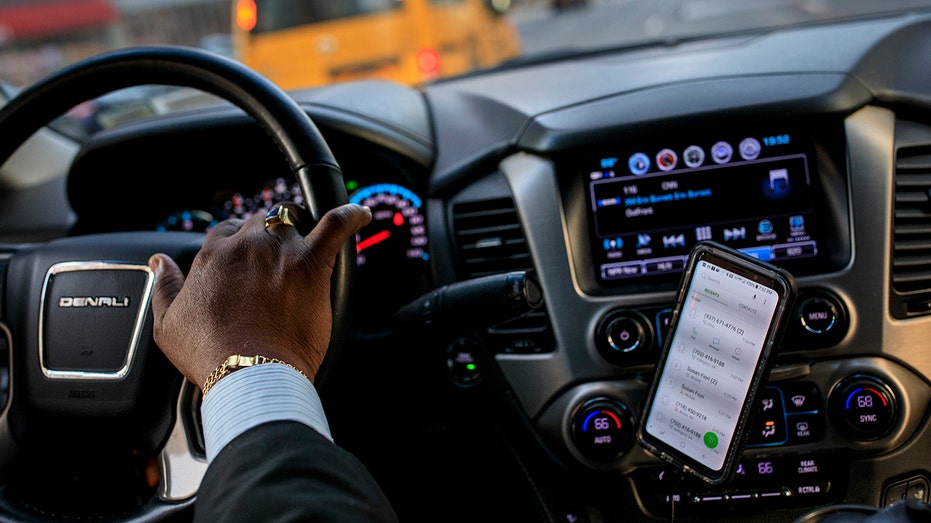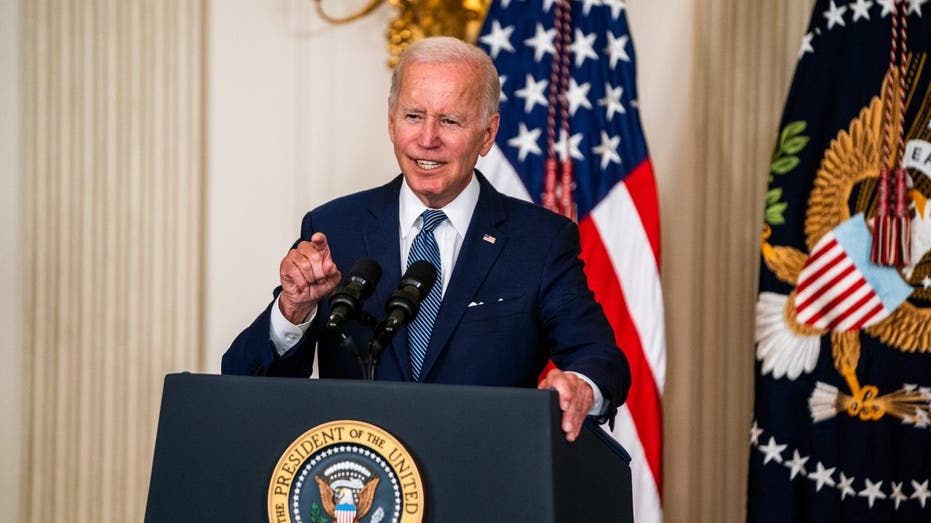How Biden's proposed overhaul of gig worker rules could work
New Labor Department rule could classify more workers as employees
Fed wants millions of Americans to lose jobs, cost of everything to go up: Fitz-Gerald
The Fitz-Gerald Group principal Keith Fitz-Gerald and Sarge986 president Stephen Guilfoyle discuss the stock markets volatile reaction to the Fed's rate hike on 'The Claman Countdown.'
The Biden administration published a proposed overhaul of labor rules that could pave the way for more gig workers to be classified as employees, prompting a swift backlash from contract-dependent companies and small businesses.
The proposal unveiled by the Labor Department on Tuesday would make it more difficult for companies to classify their workers as independent contractors – a change that could have major consequences for ride-hailing, delivery and other industries that depend heavily on gig workers.
Companies are required to provide certain benefits and legal protections to employees but not contractors, making employment of those types of workers more expensive.
If the final rule is adopted, more companies may have to provide workers a minimum wage, overtime, Social Security and Medicare payroll taxes, unemployment insurance and workers' compensation insurance. In addition to adding expenses to companies' operations, businesses have argued that employees like the flexibility that gig work offers.
BIDEN'S PROPOSED GIG WORKER RULE COULD DEAL A MAJOR BLOW TO BUSINESSES

After dropping off passengers at a Broadway play, Johan Nijman, a for-hire driver who runs his own service and also drives for Uber on the side, drives through the West Side of Manhattan on Wednesday evening, August 8, 2018 in New York City. ((Photo by Drew Angerer/Getty Images) / Getty Images)
"The proposed rule is a massive step backwards, as it resurrects an outdated approach that works against flexibility and regulatory certainty," said Karen Kerrigan, CEO of the Small Business and Entrepreneurship Council. "The proposed rule will create uncertainty, higher costs and complexity, and snuff out countless innovative ideas and entrepreneurial dreams in their infancy."
In determining whether a worker qualifies as an independent contractor, the Labor Department said it would take into consideration the worker's "opportunity for profit or loss, investment, permanency, the degree of control by the employer over the worker, (and) whether the work is an integral part of the employer’s business," among other factors.
The final rule is expected to come next year.
AMERICANS' INFLATION EXPECTATIONS DROPPED AGAIN IN SEPTEMBER, NEW YORK FED SAYS

Uber driver Karim Amrani sits in his car parked near the San Francisco International Airport parking area in San Francisco. (AP Photo/Jeff Chiu, File / AP Newsroom)
The Labor Department has argued that misclassifying workers as independent contractors denies those individuals protections under federal labor standards, hurts the economy and potentially amounts to wage theft.
"While independent contractors have an important role in our economy, we have seen in many cases that employers misclassify their employees as independent contractors, particularly among our nation's most vulnerable workers," Labor Secretary Marty Walsh in a prepared statement. "Misclassification deprives workers of their federal labor protections, including their right to be paid their full, legally earned wages."
Gig companies like Uber and Lyft have spoken out about the proposed change and warned that having to treat their drivers like employees could force them to modify their business practices. Some estimates show that the ride-sharing companies save up to 20% to 30% on labor costs by classifying their employees as independent contractors rather than employees.
Wedbush analyst Dan Ives said in a note this week that the new rule would constitute a major change for workers and employers from previous years if it takes place.
"A classification to employees would essentially throw the business model upside down and cause some major structural changes if this holds," Ives wrote in the note.

US President Joe Biden delivers remarks before signing into law H.R. 5376, the Inflation Reduction Act of 2022 (climate change and health care bill) in the State Dining Room of the White House on Tuesday August 16, 2022. (Photo by Demetrius Freeman/The Washington Post via Getty Images / Getty Images)
On Tuesday, the acting head of the Labor Department's Wage and Hour Division told reporters that the rule is unlikely to result in large worker classification changes.
"What we anticipate is that this will really help provide guidance to both avoid and prevent misclassification," Jessica Looman said during a press call, according to Bloomberg News. "But this is a framework that has been used and has been well recognized and understood."
GET FOX BUSINESS ON THE GO BY CLICKING HERE
The proposal comes one year after the Biden administration rescinded a Trump-era rule that would have made it easier for gig companies to classify workers as independent contractors rather than employees. A federal judge later reinstated the law.





















